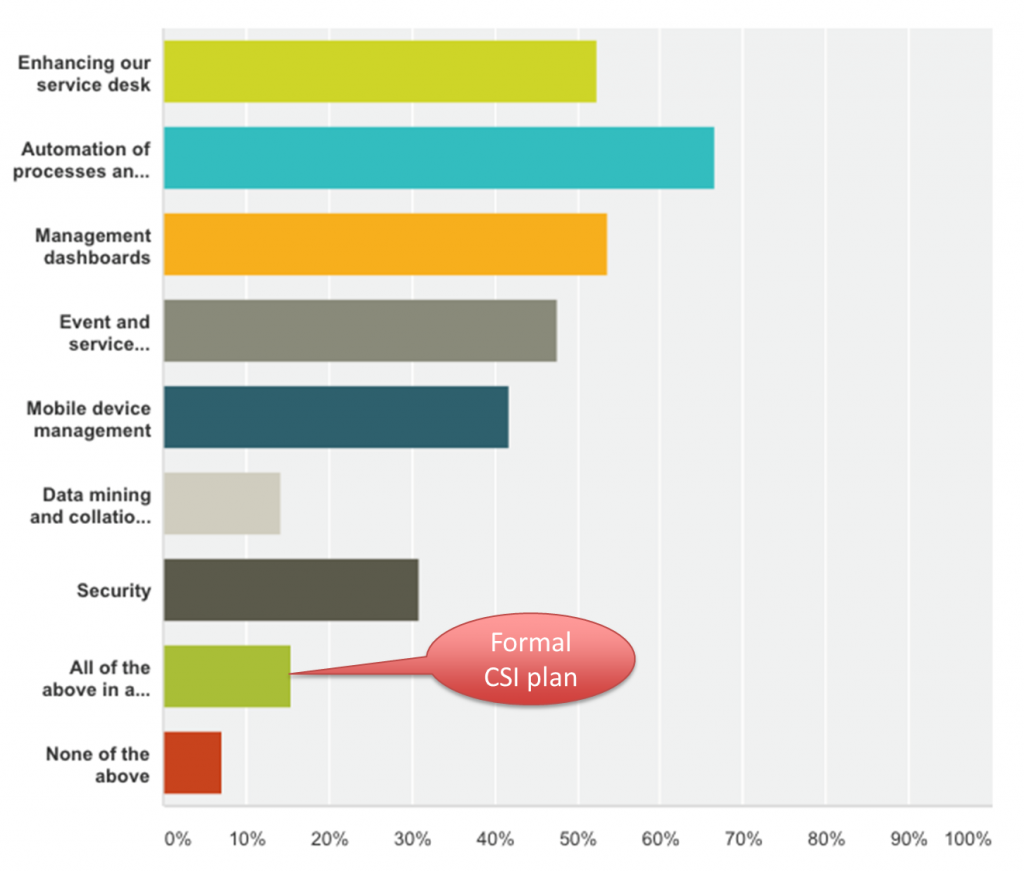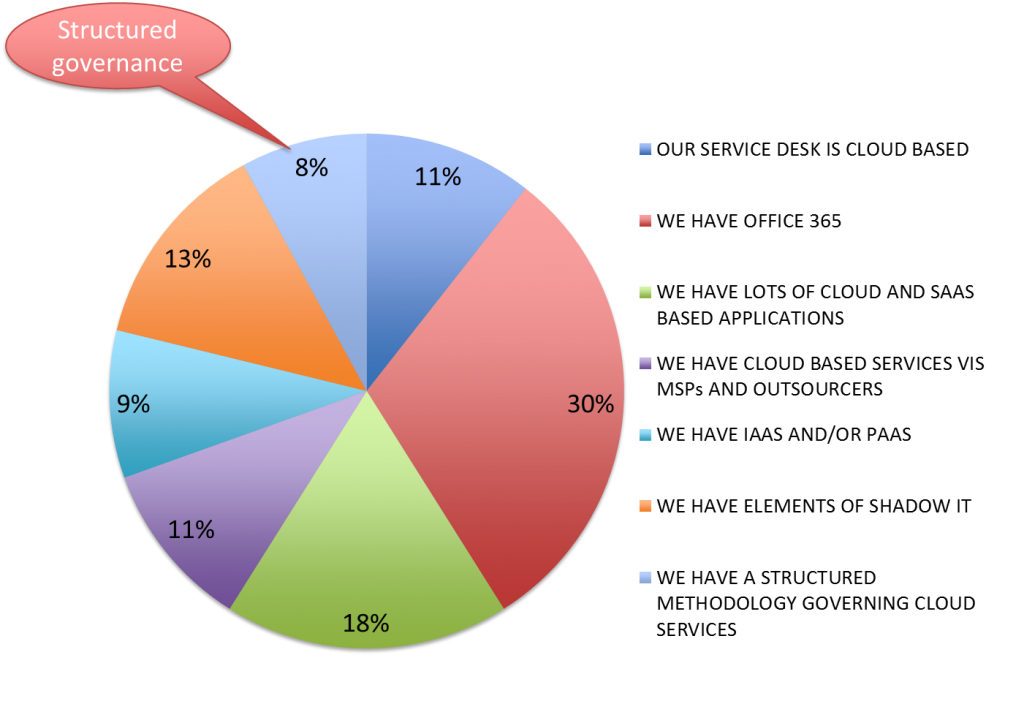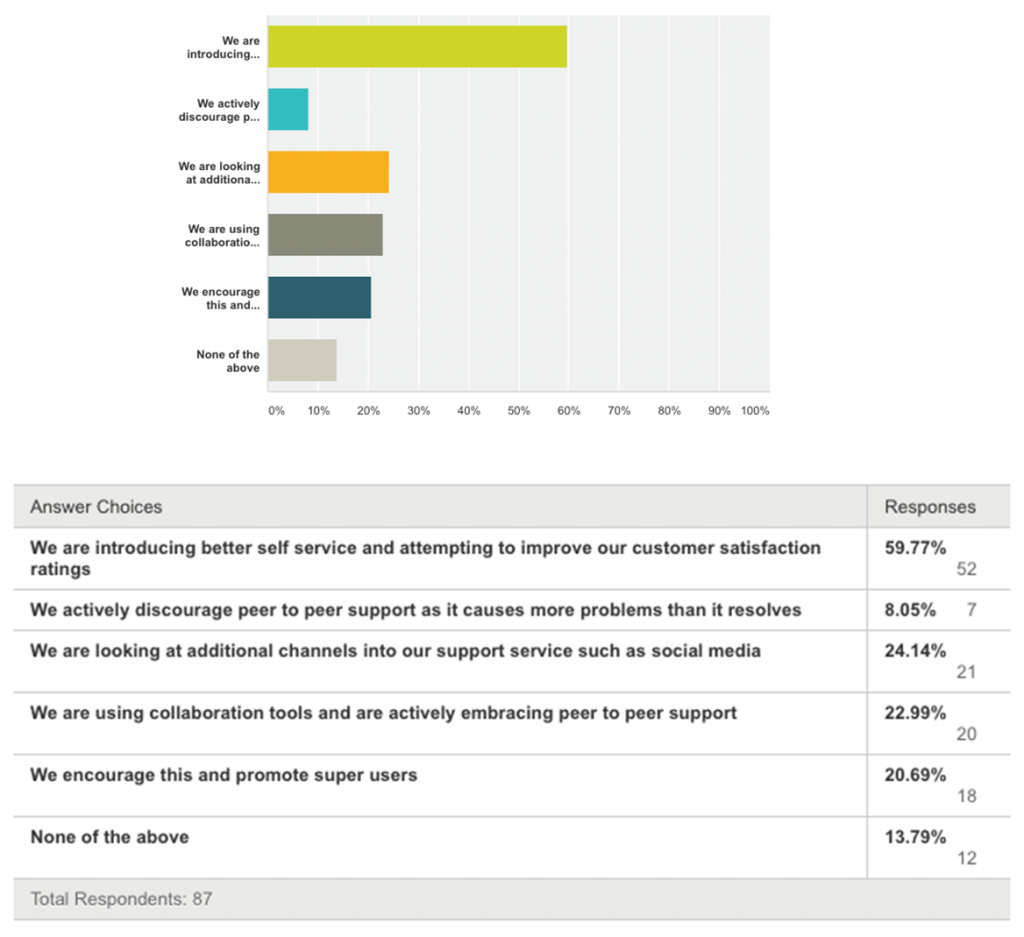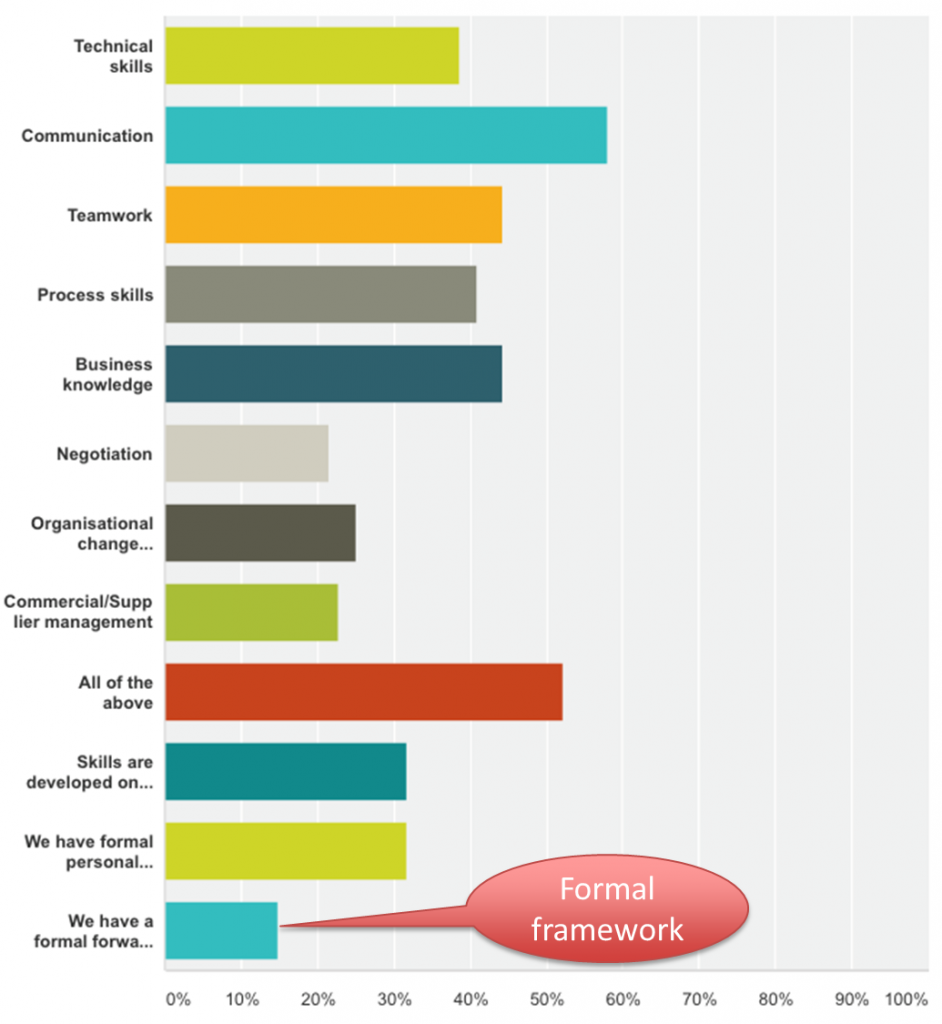I was recently part of a panel discussion at the IT in the Park conference in Edinburgh, Scotland. Along with Barclay Rae, Paul Wilkinson, Ian Moyse and John Custy, we discussed buzzwords, trends and looked to the future of IT and the IT department. We had some brilliant audience participation which meant we didn’t cover all the topics we intended to. In this blog, I’ll share with you some of the data we didn’t get time to use.
Before the panel took place, conference attendees were surveyed to get their input on a series of questions, and their responses made for interesting reading. We monitored twitter during the debate and included some supplementary questions – check #IT500panel for all the tweets.
Question 1 – Which ITSM buzzwords are you looking at or actively embracing?

I don’t think it will come as a surprise to anyone to see that ITIL is still extremely widely adopted. For many organisations, ITIL processes form the bedrock of their business as usual activities like service desk, change management and service level management. The growth of business relationship shows that organisations are keen to improve their working relationship with the recipients of their services, and will be something the BRM Institute are happy to see.
Service integration and management is also getting more popular. ‘Digital’ is a hard one to interpret because it’s not a clearly defined term.
Question 2 – From a technology perspective what areas are you looking at to improve your service delivery?

A lot of current IT thinking relates to improving the flow or work and making work visible. Automating processes and using dashboards are great ways to deliver faster flow and better visibility. It was also positive to see how many organisations are looking to improve their service desk. The lower response rate for security is interesting – could it be that the conference delegates see this as the responsibility of another area of the organisation?
IT departments do need to remember that dashboards and automation aren’t enough on their own. What are you going to automate? What do you do with the information from your dashboards?
Question 3 – to what degree have you adopted cloud services?

Many of the responding organisations are using cloud services like Office 365, but only 8% have a structured approach to cloud governance. From an IT department of the future perspective, I would expect to see this evolve. The more organisations adopt cloud services, the more they will need formal governance.
Shadow IT (where IT services are commissioned and deployed by business units without involving the IT department) was present in 13% of respondents.
Question 4 – Reports say that 40% of people no longer use the service desk as first point of contact, preferring peer to peer or internet help. What is your reaction to this?

The responses to this question showed that many organisations are trying to offer better support to their end users through more channels. Some organisations are still wary of peer to peer support. They need to be aware that it will happen whether IT encourages it or not.
Question 5 – There is a lot of talk around methods of working and mindsets that can help you improve service delivery. What are you looking at or actively using?

The responses to this question were interesting because they show greater adoption of traditionally development focused methods of working like Agile, Scrum and Lean. Some respondents were using agile service management, and I’d expect to see Kanban score more highly if the same survey were carried out at next year’s event.
Question 6 – Which skills/competencies do you think are important for ITSM staff today?

The answers to this question reinforced the fact that IT isn’t just about technical skills and knowledge any more. Soft skills like communication, teamwork and negotiation are essential, as is a deep understanding of the business and how it uses IT services.
Discussing this question at the panel led on to a discussion about recruitment for IT staff. The audience expressed some frustration about recruitment that was focused on certificates, rather than skills or experience.
The panel shared some ideas about innovative recruitment practices they’d seen including asking candidates to make video profiles and organisations who recruit via twitter.
There are specialist ITSM recruitment agencies like Cranford Executive, so if you’re hiring for a new role it’s worth talking to a specialist.
In summary
An interesting tweet from the audience; will people be keen to make their own jobs redundant?

Based on our debate, I would say that the future of the IT department is exciting and challenging. There are a lot of new ways of working available to us, but we still need to concentrate on our core objective of providing value to the business. What do you think?


